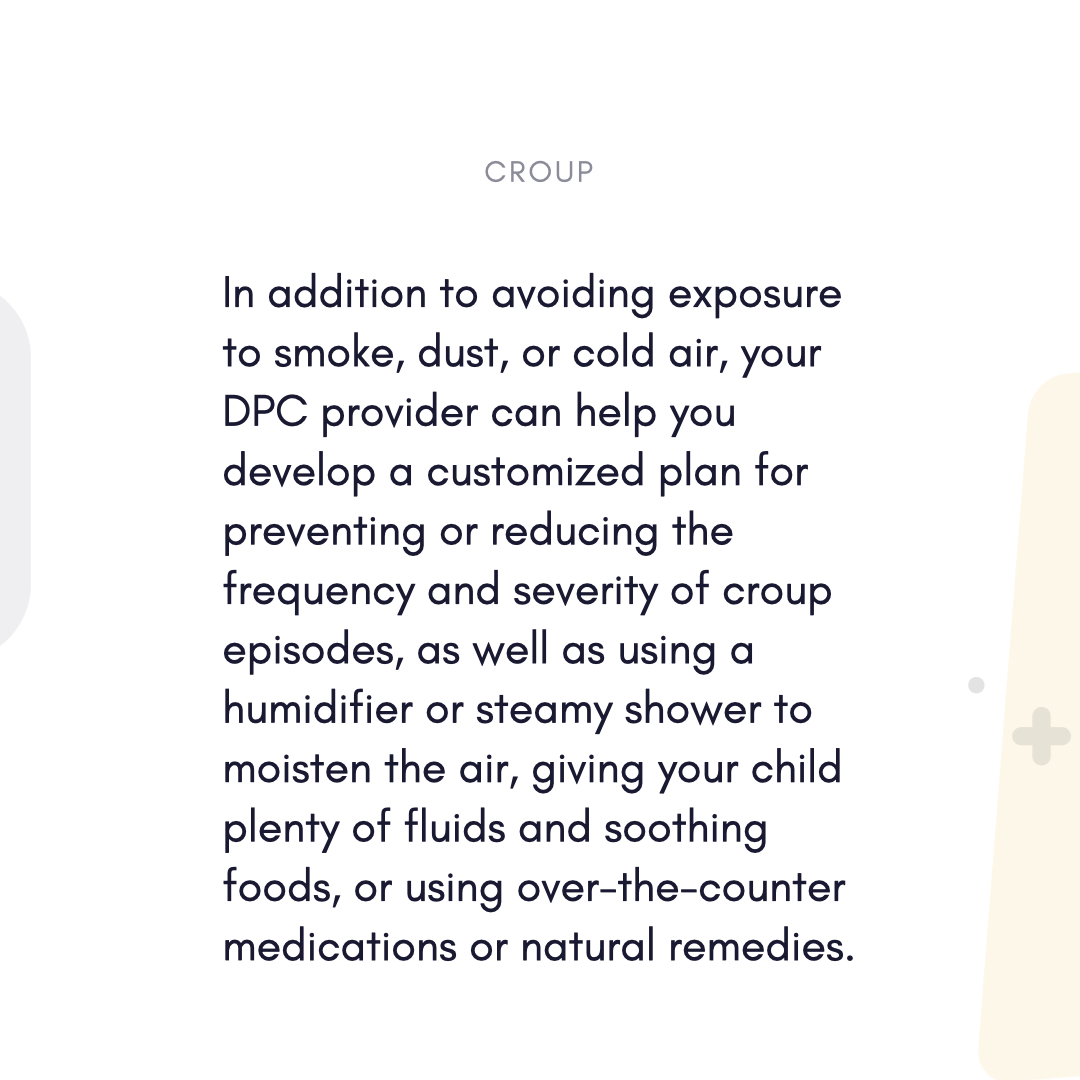Croup and Direct Primary Care (DPC): Streamlined, Compassionate Care for Your Child
Croup, a viral respiratory disease usually affecting children under five, causes stridor (high-pitched breathing), hoarseness, and a barking cough. While typically mild, its sudden onset and disruptive symptoms can alarm parents. Direct Primary Care (DPC)—a membership-based model—provides families fast access, evidence-based treatment, and tailored advice to manage croup effectively, reducing anxiety and unnecessary ER visits.

How DPC Improves Croup Control (Quick Access & Care)
- Same-day exams: In-person/telehealth visits ensure rapid assessment during stridor or respiratory distress.
- Steroid administration: In-office oral dexamethasone (0.6 mg/kg) reduces airway inflammation, often avoiding ER referrals (per American Family Physician guidelines).
- Home symptom management: Advise cool mist humidifiers, hydration, and upright positioning to ease breathing.
- Red flag education: Teach parents to recognize cyanosis, lethargy, or retractions requiring urgent care.
- Severe case coordination: Facilitate quick transfers for nebulized epinephrine if stridor persists/worsens.
Individualized DPC Croup Treatment (Comprehensive Care)
- Secondary infection management: Treat ear infections and provide recovery guidance.
- Recurrent case referrals: Collaborate with ENT specialists to explore underlying causes (allergies, subglottic stenosis).
- Preventive strategies: Emphasize hand hygiene and avoiding sick contacts during peak seasons.
- Parental support: Offer reassurance, open communication, and follow-up via phone/email to ease anxiety.
Why DPC Helps Families Manage Croup (Key Benefits)
- Lower patient-to-provider ratios: Allow thorough assessments, detailed home-care advice, and early complication detection.
- Cost transparency: Flat monthly fees (USD 50–150) cover follow-ups and urgent visits without surprise bills.
- Continuity of care: A trusted provider notes patterns (e.g., recurrent croup) and tailors prevention plans.
Limitations (Important Considerations)
- Severe respiratory issues (hypoxia, lethargy) require immediate ER care beyond DPC’s scope.
- DPC does not replace insurance for specialist visits or hospitalizations.
Final Notes (Guided Recovery)
- DPC excels in croup management with compassionate, evidence-based care and timely access to calm symptoms and parental fears.
- Ensures severe cases are escalated appropriately while empowering families to handle mild/moderate cases at home.
- Transforms a stressful situation into a structured path to recovery through affordable care, tailored education, and ongoing support.






